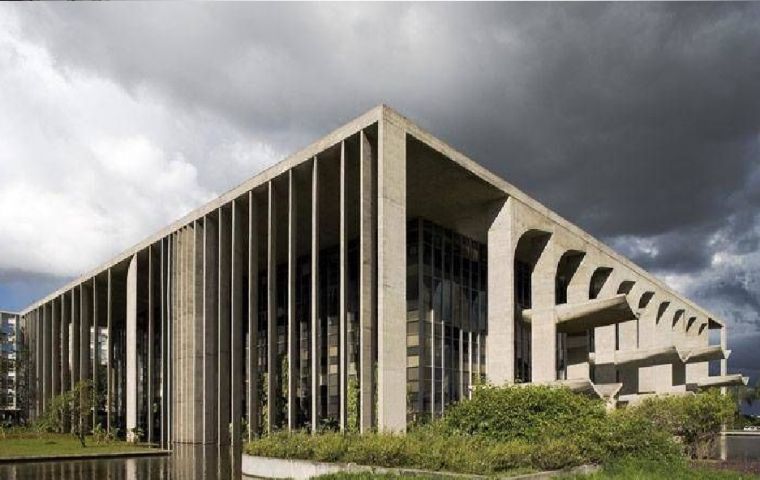MercoPress. South Atlantic News Agency
University of Brasilia agrees to quotas for trans undergrad students
 The UnB had introduced quotas for black people back in 2003
The UnB had introduced quotas for black people back in 2003 The University of Brasilia (UnB) announced Thursday that starting next year, quotas for transgender people would be implemented in undergraduate courses, Agencia Brasil reported.
The UnB approved a resolution authorizing the implementation of quotas for trans people to enter the institution's more than 130 undergraduate courses. The measure, unanimously approved by the university's Teaching, Research and Extension Council (Cepe), allocates 2% of vacancies to self-declared trans people, which includes transvestites, trans women, trans men, transmasculine and non-binary people, in all selection modalities for admission to the institution, it was explained.
“This is a historic moment for our university and for the Federal District. UnB, in its tradition, having pioneered the approval of quotas for black people back in 2003 and then the approval of ethnic-racial quotas in postgraduate studies in 2020, is now moving forward with trans quotas in undergraduate studies,” celebrated Vice-Rector Enrique Huelva, who chaired Thursday's meeting in which the new resolution was passed.
The quotas are expected to come into force in the August 2025 admission exam, for commencement in the first semester of 2026. Other admission methods, such as the specific UnB public notice for those taking the National High School Exam (Enem), should also include trans quotas.
“The person who opts for the quota will occupy the place allocated to affirmative action only if they fail to qualify in the broad competition and if there is no trans person approved in the affirmative action modality in question, the remaining places will be allocated to the broad competition,” UnB Dean of Undergraduate Education Diêgo Madureira said.
Estimates from the National Association of Transvestites and Transsexuals (Antra) and other civil society organizations show that only 0.3% of trans people in Brazil can access higher education. In a recent technical note on Affirmative Action Policies for Trans People and Transvestites, launched in September 2024, Antra pointed out that not even 30% of the trans population in Brazil completes high school in the country, while 90% have to resort to prostitution to earn an income.
UnB graduate, transfeminist activist, and social worker Lucci Laporta said she almost gave up the course because of her feelings of loneliness. “The feeling of being the only one in almost every space, of having a university where the social name was still disrespected. In order to receive a grade for each subject, I had to 'explain' to each teacher that my name in the electronic system was different, for example. I was threatened with physical violence and was afraid to walk around the university alone.”
“We need to keep fighting to create a trans-inclusive environment, to transition UnB! And the greater presence of transvestites, trans men, trans women, and all our diversity is a fundamental step towards this. With more trans students, we will have more strength in the fight to transform the academic environment.”
With the new resolution in force, it will be up to the UnB's Permanent Committee for Monitoring Affirmative Action Policies (Copeaa) to establish procedures for the hetero-identification (confirmation) of trans candidates, along the lines of what is done with students who declare themselves black, brown or indigenous, in the ethnic-racial accounts.
UnB now joins other federal universities that have already implemented quotas for trans people, such as the Federal University of ABC (UFABC), the Federal University of Southern Bahia (UFSB), the Federal University of Bahia (UFBA) and the Federal University of Santa Catarina (UFSC).
Since 2017, UnB has guaranteed the use of social names for trans people and transvestites. In addition, in 2021, UnB approved a resolution that reserves 2% of internship vacancies for these applicants.
The institution has also been working on the implementation of quotas for trans people and transvestites in postgraduate programs, already present in units such as the faculties of Law and Communication, the School of Economics, Administration, Accounting and Public Management, and the Institutes of Arts and Psychology.




Top Comments
Disclaimer & comment rulesCommenting for this story is now closed.
If you have a Facebook account, become a fan and comment on our Facebook Page!